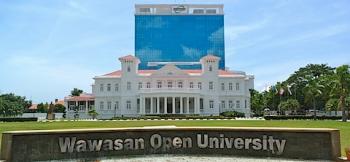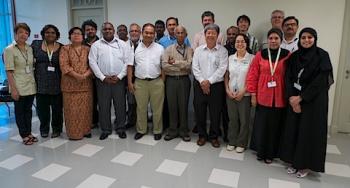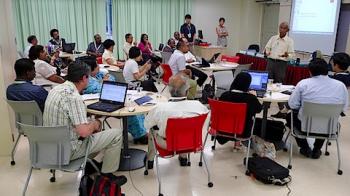In May 2011 I had a wonderful opportunity to join colleagues in Asia at a capacity-building workshop on open educational resources (OER) at Wawasan Open University (WOU) in Penang, Malaysia.

In Malaysia, like everywhere I’ve visited in Asia recently, the economy seems to be booming, with more and more Malaysian citizens seeking to upgrade their skills and accreditation by taking advanced studies, many through open and distance learning (ODL). WOU is a new university that is boldly differentiating its programs using a refined approach to ODL that draws on innovative practices and proven technologies that can support learners with their academic quests. So it’s no surprise that Wawasan is also interested in the capabilities afforded by OER for its students and instructors.
In fact one enterprising young faculty member had already built Wawasan’s first prototype course on computer systems from existing and reusable OER materials. By presenting his work in progress, he demonstrated how open scholarship can work by inviting his colleagues to probe and ask about his thinking processes for the course design and the value that he added locally to contextualize the materials for a Malaysian audience. Great stuff from an institutional role model.

Workshop participants joined us from Pakistan, Hong Kong and other Malaysian higher education institutions. They were a highly experienced and knowledgable group that had no difficulty in seeing the promise of open. And like their counterparts in institutions worldwide, their questions focused primarily on how to promote the value of OER consumption and contribution among their colleagues, the quality assurance aspects of open resources, as well as questions of community and how they could find supportive mentors and colleagues to help them move forward.
We workshop facilitators Venkataraman Balji (COL), Wayne Mackintosh (OER Foundation) and David Porter (BCcampus) provided our individual insights into key OER concepts over three days, using a combination of short 20-minute presentations followed by 20-30 minute activities that involved participants individually and in small groups with hands-on activities designed to immerse them in the “doing part” of OER. We also provided a prototype wiki-based course environment for self-study that we tested and will release for open access in late June 2011.
 The workshop materials were funded through IDRC (Canada). The International Development Research Centre (IDRC) is a Canadian government (crown) corporation with a focus on ICTs as a key means to foster development.
The workshop materials were funded through IDRC (Canada). The International Development Research Centre (IDRC) is a Canadian government (crown) corporation with a focus on ICTs as a key means to foster development.
Reprinted under Creative Commons License from David’s blog: conviviality.ca
Posted by David Porter
